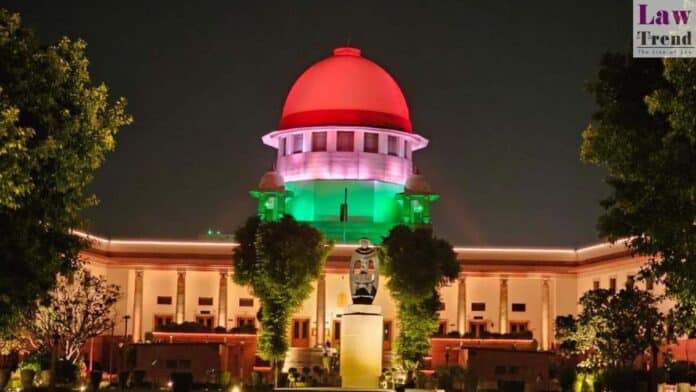The Union mines ministry has told the Supreme Court that capping the production of iron ore in Odisha was not warranted and putting a cap on mining a mineral in a particular state rich in it will jeopardise economic development of the nation.
In an affidavit filed in the apex court, the ministry has said iron and steel were the “driving force” behind industrial development in any country and mining of iron ore, an essential raw material for the industry, was arguably of prime importance among all mining activities undertaken by any nation.
A bench headed by Chief Justice D Y Chandrachud perused the affidavit filed in response to its earlier query on whether any cap can be put on mining in Odisha keeping in mind the limited iron ore reserves it has.

The top court is seized of a petition by NGO Common Cause which has contended that there was a need for imposing a limit on iron ore mining in Odisha as the reserves there were liable to get exhausted within 20 years.
“It is stated that minerals are a site specific commodity and their distribution is not uniform. Therefore, mining is carried out in areas where there is mineral occurrence in order to meet the requirements of the entire nation,” the ministry said in its affidavit.
“Putting a cap on production of a mineral in a particular state, which is resource rich in that commodity, will jeopardise the economic development of the nation, mineral availability for the downstream industries and the requirement to sub-serve the huge population base of the country,” it said.
The affidavit said with total reserves of 35,280 million tonnes, India is one of the leading producers of iron ore in the world.
Referring to the iron ore production data from the year 2000-01 till 2022-23, the ministry said it may be inferred that Odisha was the backbone of iron ore production in India and it contributes more than half of the total production of the mineral in the country.
“Therefore, any capping on iron ore production in Odisha would adversely impact the supply of iron ore to downstream industries,” it said.
The affidavit said even after the cumulative national production of approximately 4047.78 million tonnes of iron since 2000-01, the iron ore reserves in India have increased from 17,712 million tonnes in 2000 to 35,280 million tonnes in 2020.
“It is stated that if there is a capping on production of iron ore, then it may distort the mineral production and supply in favor of the existing lessees. If a vast chunk of the capping is already being used up by the existing lessees then any new block being put on auction may see aggressive bidding due to limited quota for production,” it said.
The affidavit said this may raise the price of the mineral, thereby raising the input cost for downstream industries and have a cascading impact on overall inflation.
It said India is currently on a high growth trajectory with the overall objective of achieving broad-based improvement in living standards of all sections of the society.
To fully harness its growth potential, the country requires creation of infrastructure such as airports, railways, bridges, ports, real estate, manufacturing etc. and in all of these, indigenous production of steel will be extremely crucial, the ministry said.
Also Read
“Therefore, the concept of inter generational (equity) does not mean ban or limit on mining of minerals. Rather, inter generational equity has to be understood holistically taking into account the developmental needs of the country, resource/reserve augmentation, and potential for recycling,” it said.
“It is clear that no capping is warranted on the production of iron ore in the state of Odisha,” the affidavit said.
It said steel being an important pillar in achieving the economic goals of the nation and in making India self-reliant, any such capping would be highly detrimental to achieving the common developmental goals of the nation.
“Therefore, Ministry of Mines is of the considered view that no capping is warranted on production of iron ore in Odisha,” the affidavit said, adding, there was no requirement for any study on capping on iron ore production by the Central Empowered Committee (CEC).
While hearing the matter on Monday, the apex court asked the Ministry of Environment, Forest and Climate Change to give its view on whether iron ore mining in Odisha can be capped, keeping sustainable development and intergenerational equity in mind.







